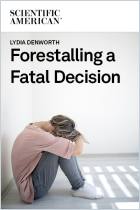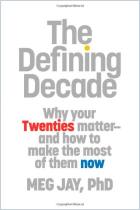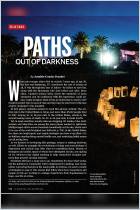
Article
Sex, Drugs and Self-Control
It’s not just about rebellion. Neuroscience is revealing adolescents’ rich and nuanced relationship with risky behaviour.
Nature,
2017
Recommendation
Risky behavior causes a large proportion of deaths among teenagers. Yet recent studies have found that risk appetite among adolescents is no higher than among adults. In this article, Nature’s news feature editor Kerri Smith looks at the latest research into teenage brain development, which explores the factors that determine risk behavior among adolescents and its impact on the brain – and how these findings can, and should, inform policies. This article will engage anyone who wants to get the adolescents in their care safely through their teenage years.
Summary
About the Author
Kerri Smith is a feature editor for Nature, covering life sciences. Her background is in human sciences and neuroscience.


















Comment on this summary or Démarrer une discussion